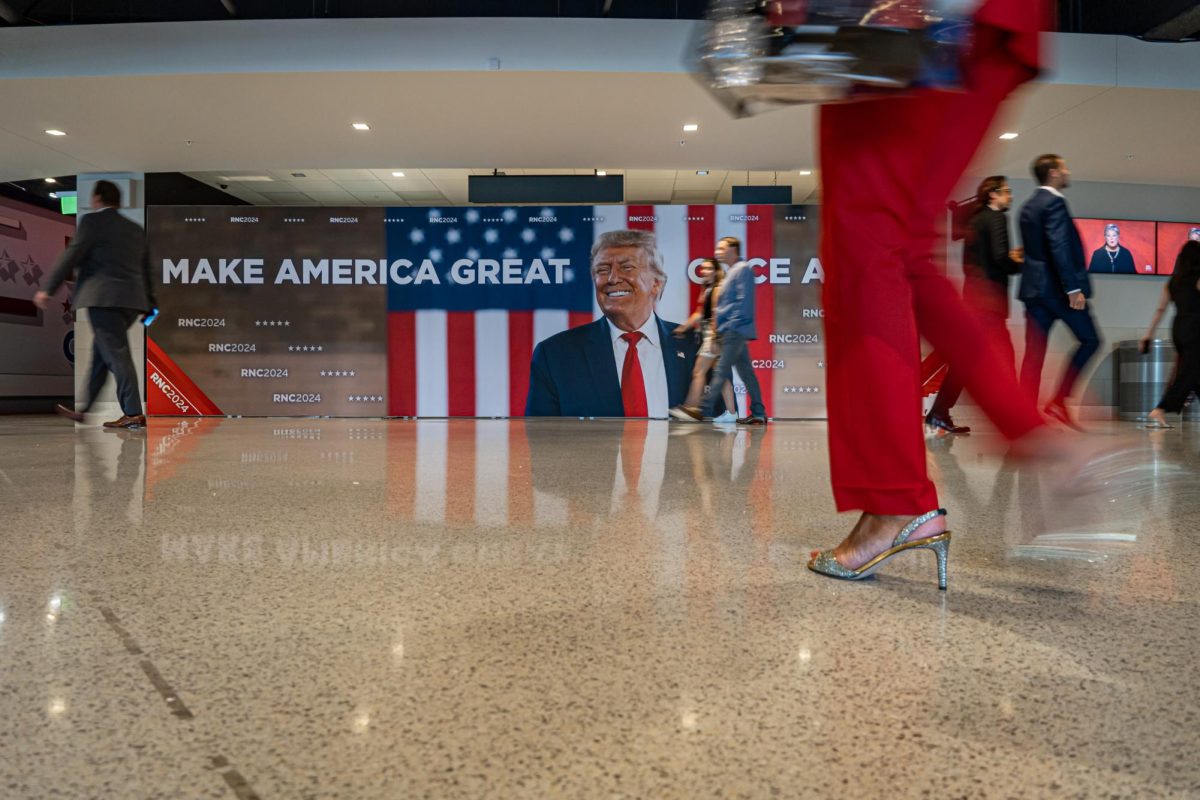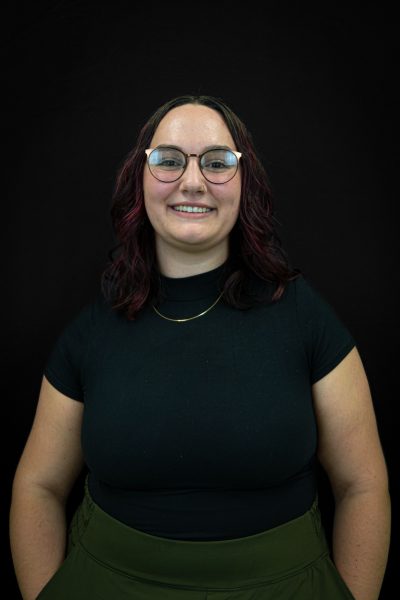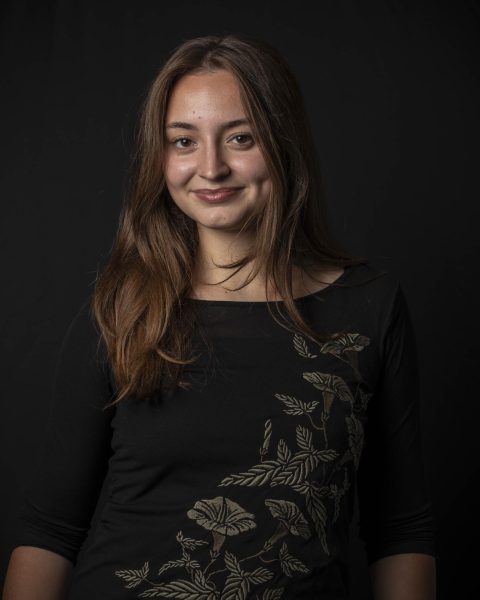Students had a chance this week to ask political science and law experts their biggest questions about President-elect Donald Trump’s second term.
Columbia Votes hosted “Can he actually do that?” on Wednesday, Nov. 20. About 20 people attended the event, which included a presentation from three panelists: Robert Watkins, an associate professor of political science at Columbia College and Arthur Acevedo and Alexandra Filindra, both professors at the University of Illinois Chicago.
Sharon Bloyd-Peshkin, a professor in the School of Communication and Culture and the founder of Columbia Votes, said students are anxious about Trump’s re-election, as the Chronicle previously reported.
“So the students that I am in touch with at the college, which is a pretty broad swath, are really crushed by it,” she said. “People are really having a tough time processing not only what happened, but what it means that it happened, right?”
According to members of Columbia Votes, that was the inspiration for this event.
Tyler Harding, a senior film and television major and voter registration genius, said the purpose of the event was to break down the issues. “All of those fears and anxieties can kind of build up into just one giant cloud of confusion,” he said.
Harding said Columbia Votes decided an expert panel should be included in the conversation so that students would have ample access to credible context, evidence and answers.
Columbia Votes representatives collected possible questions for speakers from a listening post they set up in the Student Center after the election.
Sophomore game art student Taika Clark heard about the event from Columbia’s Engage app. “I’m just trying to collect all the information I can right now so we can make actual moves, whatever that will look like,” Clark said.
Eryn Young, a junior marketing major, said her biggest concern was addressed during the Q&A portion of the event as well. She was particularly curious about the possibility of Trump remaining in office after his upcoming term. “I’m really glad that that question was asked,” she said. “I definitely got a good answer to that.”
Some of the questions covered topics such as the role of sanctuary cities, the extent of state power in abortion and reproductive healthcare, how the homeless population will be affected, LGBTQIA+ rights across the country and how far presidential immunity can stretch.
One student asked about how Trump’s pledge to eliminate the Department of Education would affect federal financial aid. As the Chronicle previously reported, the department can’t be eliminated without congressional approval, but its budget could be cut.
Filindra said that with Linda McMahon leading the Department of Education, it’s very possible that “they may tie Pell Grant access to ideological conformity on campus.” McMahon, who ran World Wrestling Entertainment for decades, is Trump’s nomination for education secretary, an appointment that has to be confirmed by the Senate.
Acevedo followed by explaining the legality behind tying federal grants to what a college or university teaches. “Based on our current precedent, all of these restrictions should be found unconstitutional because of something called viewpoint discrimination under the First Amendment,” he said. “But again, we’re in a new era where we’re going to see that just because the law says one thing, that is not going to stop this administration from trying to challenge regulations.”
Jaylen Barlow, a junior journalism major and voter registration genius, said he really appreciated the expert input from the panelists.
“They didn’t just say something simple and leave us hanging, they really went in depth,” he said. “Like these people knew what they were doing.”
Harding also valued the panelists’ transparency about the reality of America’s future. “They presented these problems in all of their complexities,” he said, “but they did make the knowledge very much accessible.”
He felt that talking through these concerns with the panel was helpful, even if the answers weren’t optimistic about the next four years. “It was really nice to know at least what to expect, what to look out for,” he said. “I appreciated them saying you know, don’t tune it out. You have to stay vigilant; you have to keep paying attention. This event was certainly part of that.”
Harding said seeing the student engagement firsthand helped him feel a little bit better. “That really gives me hope that other people will know what to look out for; that other people will stay educated, pay attention, read the news and read the news from good sources.”
Clark had a similar outlook. “It did make me feel good,” Clark said. “It’s like the cheesy ‘you’re not alone.’ But I know that if something were to happen to me or to other people on campus, it would matter to the people here.”
Copy edited by Doreen Abril Albuerne Rodriguez










